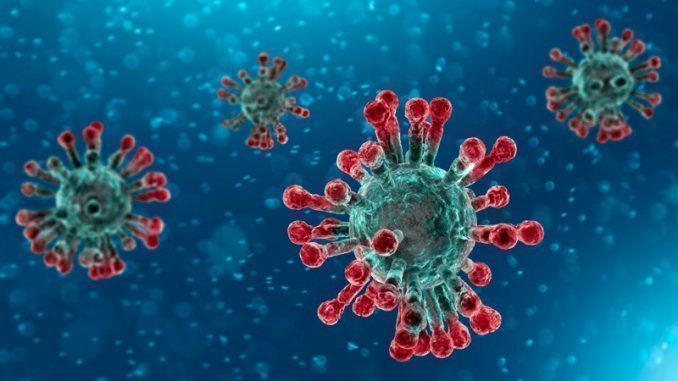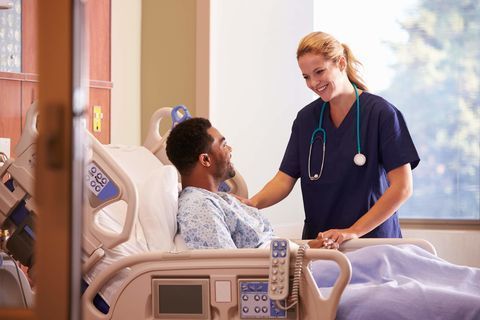
The short- and long-term effects of Covid-19 pain sleep alteration anxiety fear
The short- and long-term effects of Covid-19: pain, sleep alteration, anxiety, fear
One of the worrisome considerations derived from the SARS-COV-2 pandemic has been that the virus not only attacks the lungs with interstitial pneumonia that seriously injures the alveoli and thrombizes small vessels leading to sometimes fatal respiratory failure, but attacks all organs causing certain deficits that are likely to persist for a long time and with major consequences. Recently, a Rockefeller University publication reports on the identification of “long-haulers,” that is, people who after an initial infection that is often moderate and treated at home, fail to recover and remain incapacitated because they do not breathe adequately and present with a range of other chronic symptoms such as constant chest and heart pain, bowel symptoms, headaches, inability to concentrate, memory loss, and tachycardia even when just going from lying down to sitting. But also neuromuscular weakness, fatigue, shortness of breath especially under stress, coughing, and a lot of weakness.
Other alterations: reduced sense of smell and taste and sleep disturbances
In addition, there are chances that they will go through more or less severe stroke or transient ischemic attack in the immediate but also in the mid-period related to altered coagulation. This is the picture presented during the webinar “Covid-19 Organopathy. Diagnosis, treatment and follow-up” organized by Motore Sanità.
The data speak for themselves: between 1/5 and 1/10 of patients suffer symptoms that last more than a month, while in one in 45 patients (2.2%) they last for more than 3 months. About 4 million people with sequelae and disease with chronic sequelae are currently reported worldwide.
Both patients who have had severe and mild and/or moderate infection are affected. A portion of these patients have a virus permanence nested in certain organs that results in a continuous cytokine rain with inflammatory state and, if immunodepression is reached, also to the reactivation of the disease with important aggravation. Heart, brain, gastrointestinal system, kidney are the organs affected with sometimes heavy consequences, hence the importance of clinical awareness of the resulting pathologies, starting with their diagnosis, treatment and especially follow up as organized by some regions in order to understand the importance and variety of post Covid residuals in infected citizens.
There is now a drug that modulates the effects of the cytochemical storm and may have influence on chronic manifestations as well
“The administration of baricitinib, a drug already used for the treatment of rheumatoid arthritis, and used in an “off-label manner on the 20 patients with the most severe forms of Covid-19, showed within 7 days of administration a marked reduction in serum levels of inflammatory cytokines while circulating T and B lymphocytes returned to normal and antibody titer against the virus was raised,” explained Vincenzo Bronte, AOUI Verona Immunology Director. “In other words, the drug restores the immune system’s defensive capacity damaged by Covid. The results were confirmed by a U.S. clinical trial of baricitinib in combination with Remdesivir in a population of 1.000 patients with Covid-19 pneumonia.”. According to an analysis conducted by Pneumology of Cremona Hospital, 5-6 months after discharge, of about 400 patients already rechecked, the most frequently reported symptomatology is asthenia, fatigability, widespread pain, inspiratory dyspnea at rest, sense of chest constriction, sleep alteration, anxiety and fear.
90% of symptomatology is related to anxiety problem and stress. Healthcare workers also report serious consequences
“There is a condition of high emotional impact,” explained Giancarlo Bosio, Director of Pneumology Cremona Hospital: the fear of becoming infected was high but still less than the fear of infecting family members; the level of subjective well-being drastically decreased and even in the subsequent post-emergency phase did not return to previous levels: the emotional impact was generalized and there are for some operators persistent manifestations of the critical events associated with sleep difficulties and anxiety; almost two out of 3 operators accept emotional support or support.”. What is already being observed in the outpatient clinics is a recurrence of patients who have irritable bowel syndrome, who have had a Covid infection, the trigger that reignites functional symptoms.
“But there are some patients who have never had functional symptoms, have had Covid infection and develop a syndrome typical of irritable bowel syndrome, and this is not a new thing,” admitted Franco Radaelli, Director UOC Gastroenterology Hospital Valduce in Como -. We know that after an infection of the gastrointestinal tract about 10% of patients develop post-infectious irritable bowel syndrome’irritable bowel syndrome. Direct cytopathic damage by the virus gives an’alteration of intestinal permeability that gives an activation of the enteric immune system leading to altered motility, visceral hyperalgesia, to intestinal dysbiosis (the three main pathophysiologic mechanisms of functional disorders of the gastrointestinal tract).
In addition, post Covid syndrome is characterized by an’altered psychological state (anxiety, depression), which in the double link that there’s in the brain-gut axis negatively affects the perception of all gastrointestinal symptoms. We will expect in the near future just an increase in patients in functional disorders clinics who have been infected with Covid.”. There is an important relationship between cardiovascular disease and Covid. “Both because that pre-existing cardiovascular disease somehow affects the prognosis and medical history of the Covid patient, and because Covid itself results in cardiovascular disease – explained Claudio Bilato, Director UO Cardiology Hospital “Cazzavillan” Arzignano -. Certainly there’s a persistence of post-Covid symptoms that would seem not to relate at least largely to cardiovascular pathology, but certainly the myocardial and pulmonary damage accrued during Covid infection can result in important sequelae not only in terms of decompensation but, for example, if one thinks of pulmonary fibrosis, it can result in chronic pulmonary hypertension, a disease that certainly not only represents a compromised prognosis but also drastically worsens the quality of life.”.
When we talk about quality of life post Covid
When we talk about quality of life post Covid one must consider the clinical characteristics of the patients treated. “Hypertensive in 64.5 percent of cases, heart problems in almost 29 percent of cases, diabetic in 21 percent, obese in 18.8 percent, with dyslipidemia in 17.7 percent of cases, with oncological problems in 16.7 percent and with neurological problems related to senescence in 50 percent of cases and with very complex therapies in 67 percent – pitted the data Sebastiano Marra, Director Department of Cardiology Villa Pia Hospital Turin who, at 60 days after acute hospitalization, in the rehabilitation program, recorded a good recovery of these patients “both on objective and clinical parameters of recovery of subjectivity and normalization of life”.
At the IRCCS San Martino in Genoa, a very short-term follow-up has been created to monitor the patient discharged from the ICU and put him or her through a true intensive rehabilitation program in which physiotherapy plays a key role.
“Patients are kept from 3 to 10 to 15 days because at least 30%-35% of them have additional problems that need to be treated very quickly – explained Paolo Pelosi, Full Professor in Anesthesiology and Resuscitation, Director UOC Anesthesia and Intensive Care IRCCS San Martino Genoa -. Continuous monitoring of respiratory saturation and fatigue and early intubation in patients with severe respiratory distress is extremely important.”.
“There is a need for prolonged follow-up of patients over time, and telemonitoring, teleconsultation, and telerehabilitation systems can play an extremely important role in concretely addressing these problems that linger after discharge, considering that not all patients can be followed up in a traditional outpatient way,” explained Franco Molteni, Director UOC Recovery and Functional Rehabilitation Villa Beretta Costa Masnaga -. Obviously, constant follow-up is essential that will tell, in the long run, what additional issues we need to focus on from a rehabilitation standpoint to fully return these patients to their pre-Covid lives”.
Instead, to deal with persistent positives in patients and health care workers, additional molecular tests have been developed in the Microbiology and Virology laboratories of the University of Padua Hospital Company in order to give additional help to clinicians. “Our goal is to verify whether these very low persistent positives are related to a virus that is still in the replicative phase or if they are just a trail where the virus is no longer infecting,” explained Lucia Rossi, Microbiology and Virology, University of Padua Hospital Company -. In these months, we have been doing both cell cultures and subgenomic mRNA research in parallel,” added Elisa Franchin, Microbiology and Virology, University of Padua Hospital Company -. We are adopting these types of virus sample search criteria for the management of patients and staff who need to return to work.”.
“Faced with an important number of admissions to hospitals and intensive care admissions, thus an important number of patients who will have to be taken care of after discharge, institutions must think about fostering the development of appropriate health care pathways in the context of these diseases – explained Franco Ripa, Piedmont Region – Health and Social Services Programming Manager – that is, models that must start from guidelines, which must be translated from an organizational point of view and above all evaluated.”.

